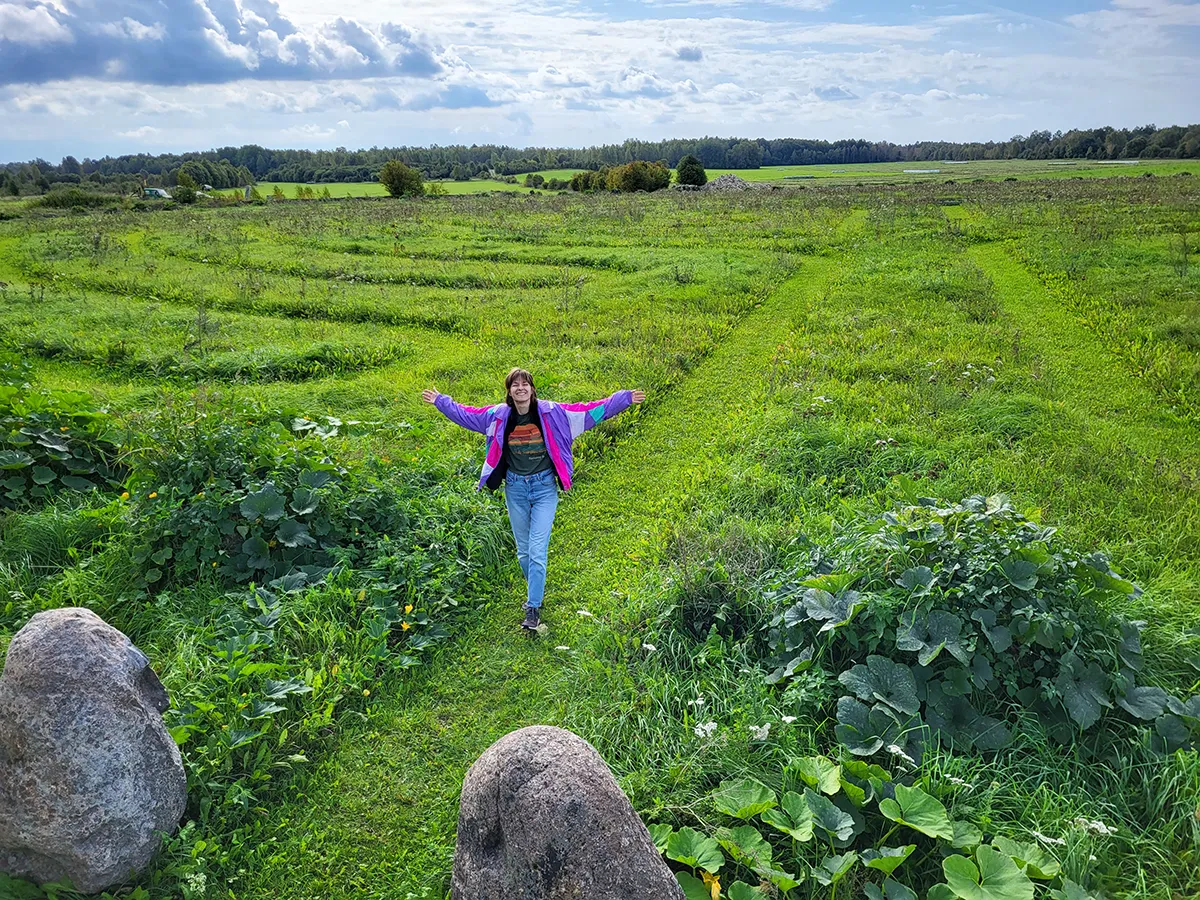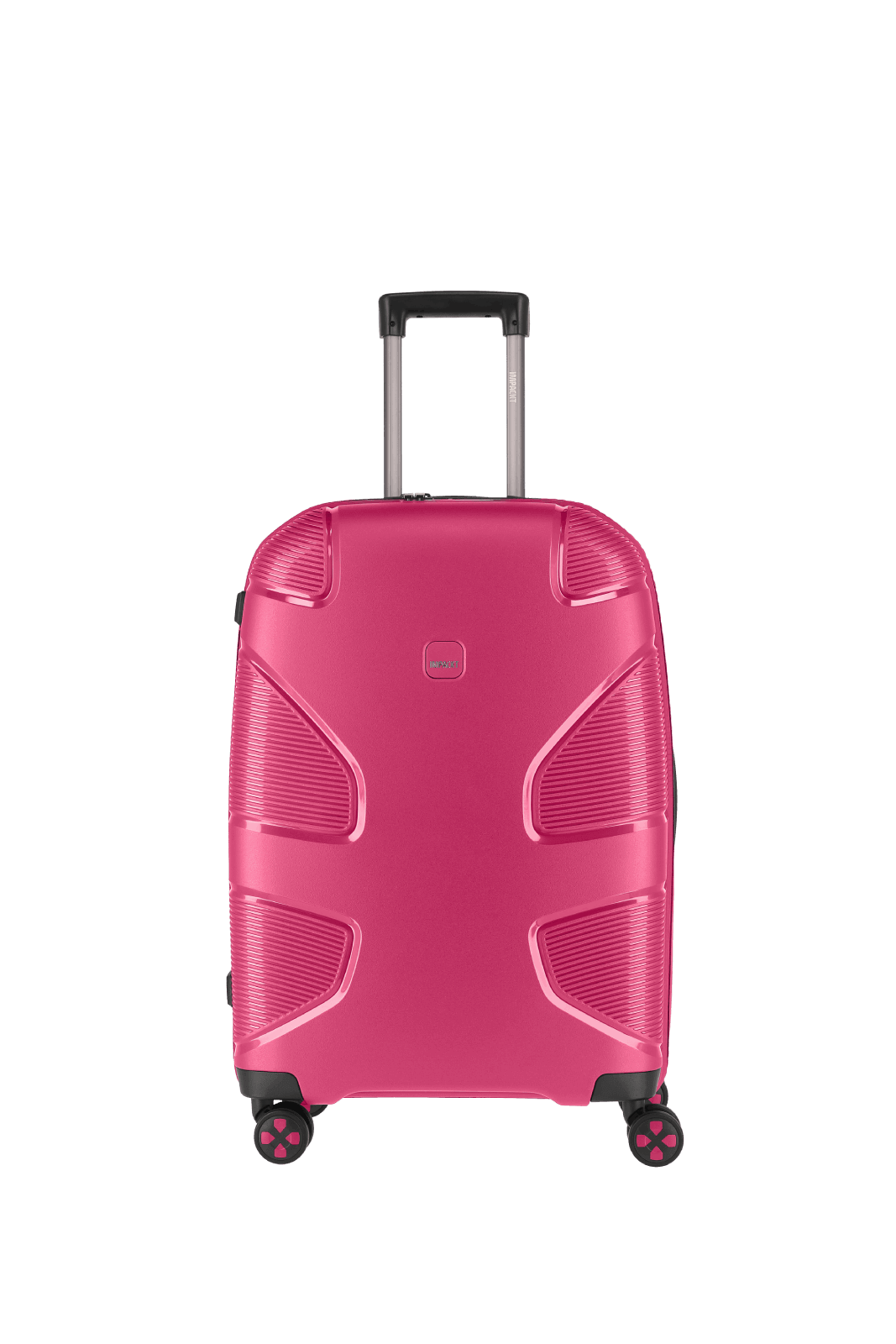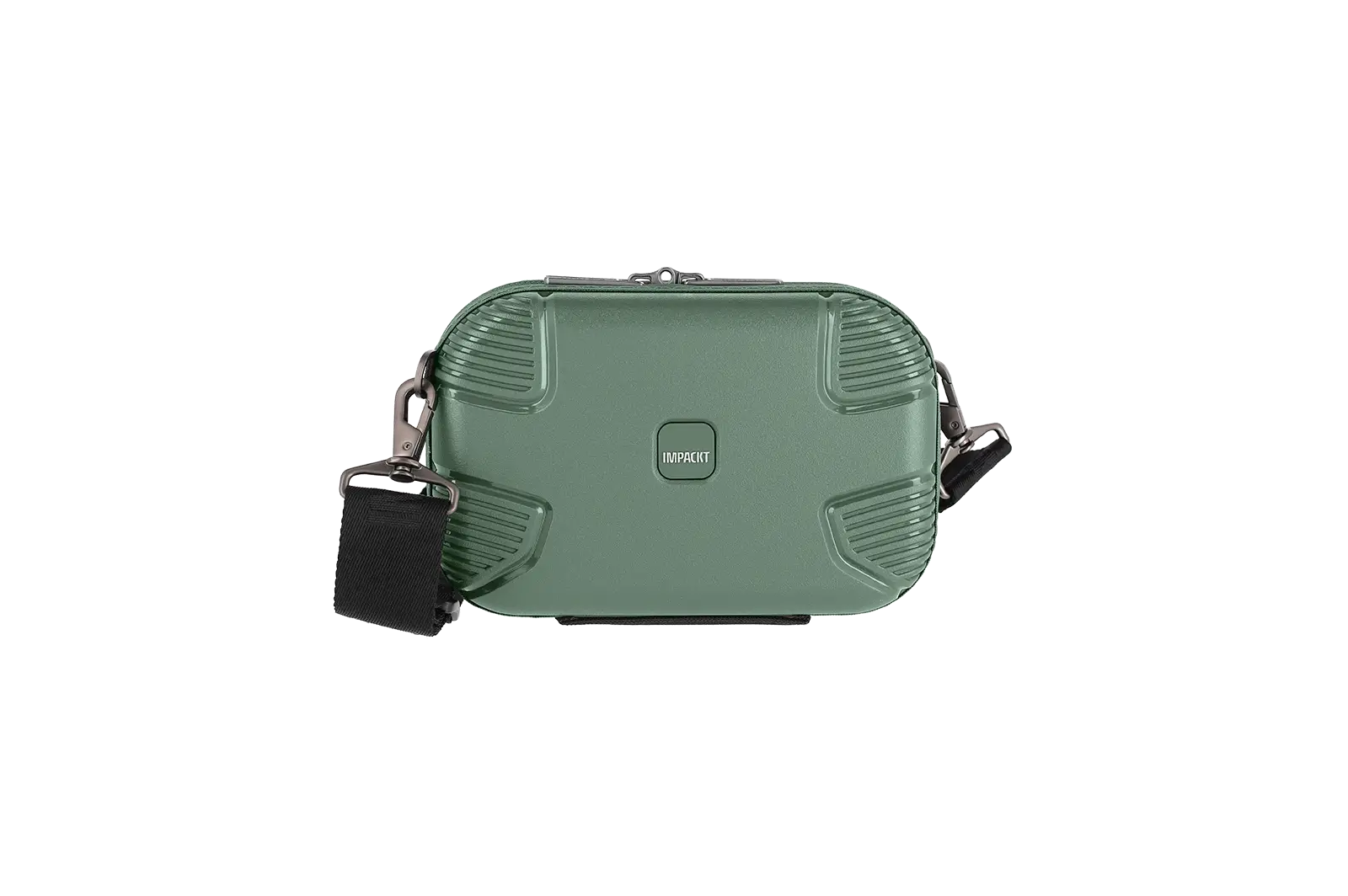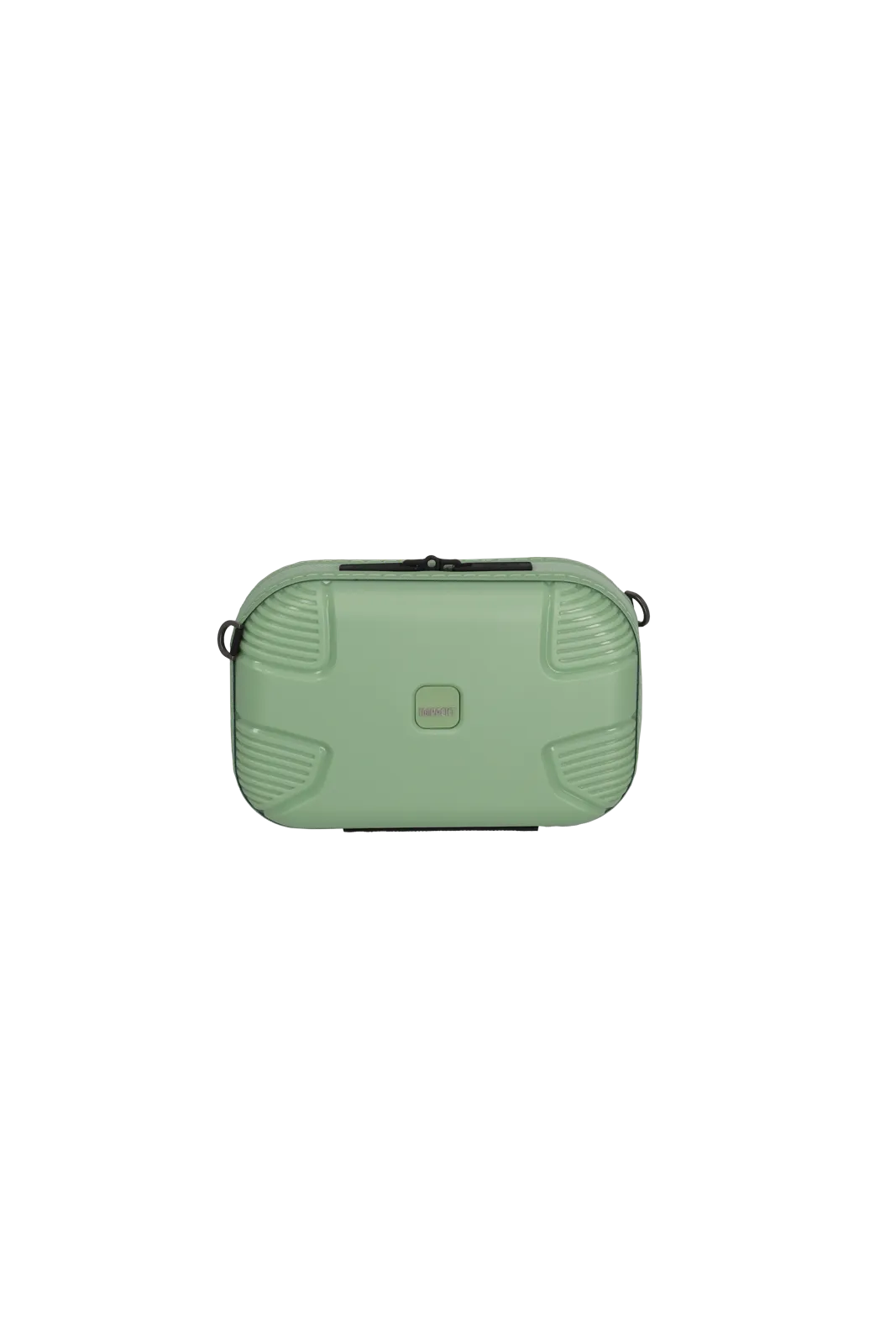Want to explore the unspoiled nature of Estonia and its islands and delve deeper into Estonian culture? Let's go to Saaremaa, one of Estonia's more than 2000 islands, where colorful traditional costumes and permaculture art await you before heading to the mainland for canoeing and saunas.
You're about to find out exactly why I'm traveling there and who told me these sustainable travel tips full of IMPACKT.
From Vietnam to Estonia: A Journey Through Nature and Culture
Remember the Estonian couple I met in Vietnam at the Black Hmong met? While Indrek, as a permaculture expert, was fascinated by nature, Piret, as a professor of Design and Crafts, was enthusiastically analyzing embroidery. I listened to them with interest and was introduced to their village Neemi invited to Estonia to discover their costumes and ways of life.
Introduction to the world of Estonian traditional costumes
No sooner said than done. Six months later, I'm sitting surrounded by ornately draped traditional costumes, books, brooches and embroidered gloves in the rural setting of my parents' Indrek farm on Saaremaa. Next to me on the soft carpet sit Piret, her cat Charlotte and my dad, who accompanies me on this adventurous journey.
We are in the middle of a small workshop: As professor at the Academy of Arts Piret has amassed an impressive collection of traditional costumes. She is showing us part of it right now, introducing us to the multi-faceted world and meanings of the colors and embroidery of traditional Estonian clothing. The colorful skirts were worn layer upon layer à la Zwiebellook. It was a real lifesaver. "There are stories that the women went overboard on the fishing boat. The thick-woven skirts they wore on top of each other stored the air, creating a life preserver of fabric. This gave the men time to turn the boat around and fish the woman out of the sea," Piret tells my favorite fun fact.
Costumes today: experience the cultural splendor
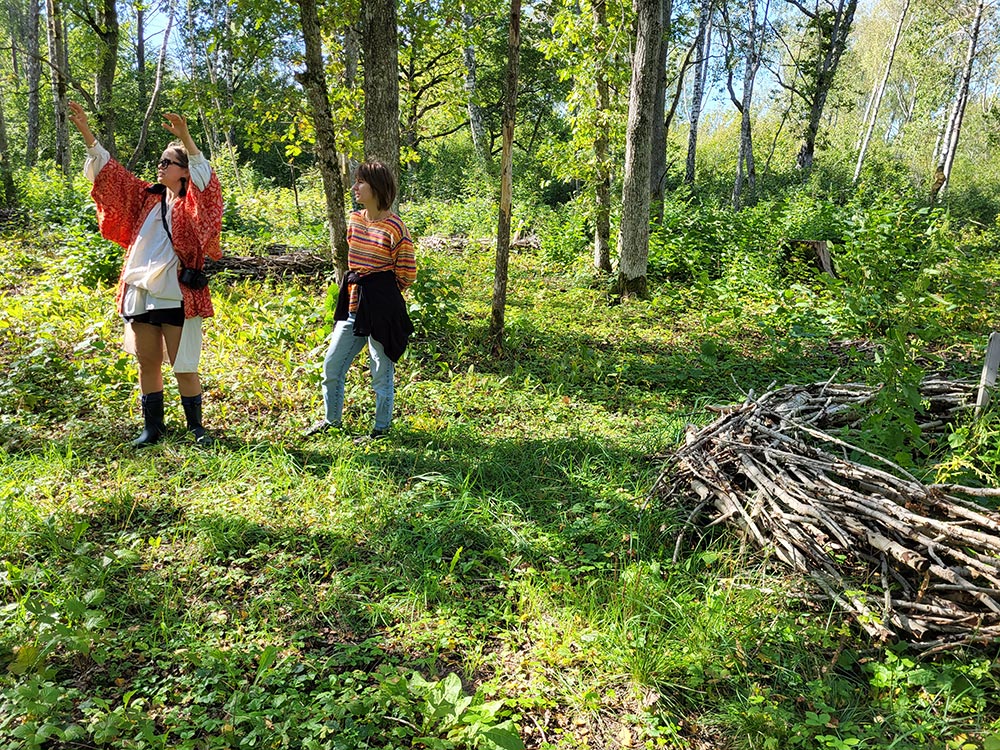
On the island of Muhu, traditional costumes are still worn in everyday life, and Piret herself inspires to combine traditional garments with modern elements. She herself wears a kimono on this day, which she combines with an 80-year-old blouse from South Estonia.
If you want to see the complete traditional costumes live and in full color, Piret puts the Singing and Dance Festival on Saaremaa. Another highlight is the nationwide Song and Dance Festival on the mainland in Tartu, where you can marvel at all of Estonia's traditional costumes. This cultural event is a UNESCO World Heritage Site and every five years draws over 100,000 people under its magical spell.
From forest savior to permaculture artist
After the inspiring costume introduction, we head out of the village towards the forest - or more precisely, to her forest patch. That's because her partner Indrek found inspiration there when he longed for peace and quiet during his stressful civil engineering studies. When the woodland was to be bought up by a large corporation and built on, Indrek took a drastic decision: he borrowed €15,000 from Freund:innen and bought the woodland to start his first permaculture art project: a fruit forest, exclusively for animals. To increase biodiversity, he planted circular nests with fruit trees in the middle and artistically arranged them into a pattern. I am quite fascinated by this and am happy to meet people like Piret and Indrek on my travels who are making a positive IMPACT in their local community. Indrek is not at all the only one in the village with this: in 1925, the village blacksmith Mihkel Ranna created a 0.4-ha arboretum. This is a collection of over 100 native and alien species of trees and shrubs, which is still maintained and open to all as a local attraction.
Vegetable garden as a maze: permaculture art for young and old
Back at the outskirts of Neemi village, we marvel at another permaculture art project by Indrek: a 2.3 km long labyrinth. The path is freshly mowed and lined with tall grass and wildflowers. 108 hay bales are arranged in a circle around the maze like beads on a chain, forming a frame. These hay bales serve as a raised bed for fresh vegetables that can be harvested by young and old. Great idea, right?
For the maze Indrek has left my father and I a task, which he puts all visitors:inside: With a block of wood in hand, we are allowed to walk the labyrinth and leave a worry in it. Afterwards, we put the piece of wood in the fire bowl in the middle, get rid of our worries and step out of the labyrinth, ready for something new. This experience was incredibly meditative and a different kind of art experience. This local tourist attraction across the street from Arboretum I can only recommend you - especially as a family.
5. Season - Instead of carnival there are canoe tours
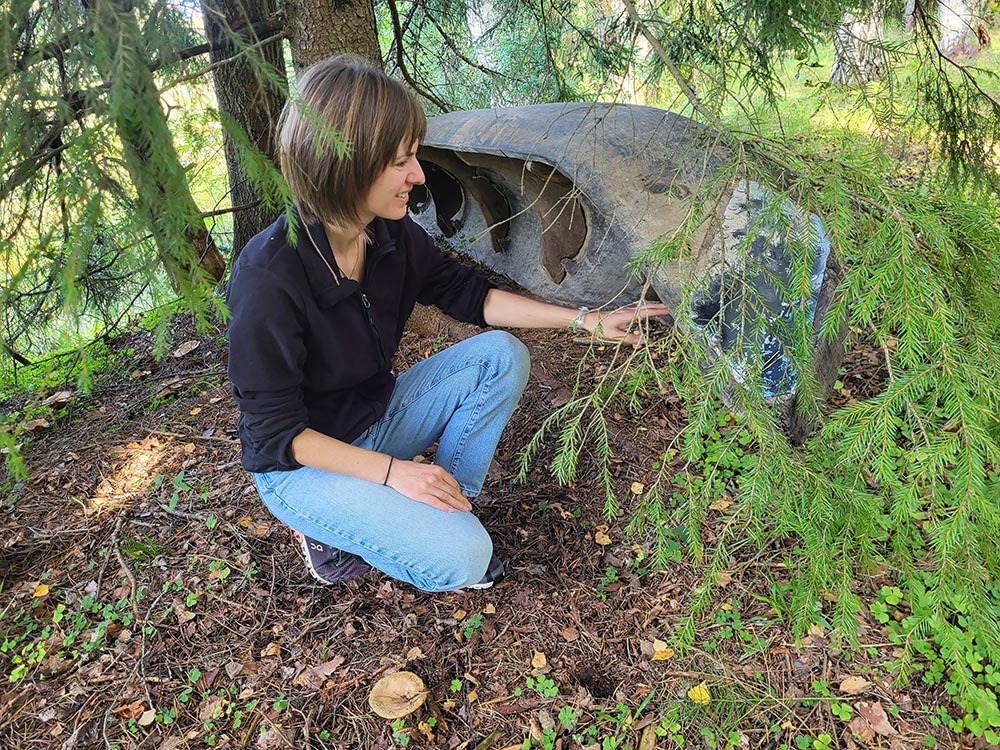
Now we make a scene change. Piret takes us to the mainland and goes with us to Soomaa National Park. Because here once a year a very special natural spectacle takes place: The fifth season. This is not like us the carnival season.
Instead, it describes the time between winter and spring. When ice and snow melt, streams and rivers can not absorb the resulting masses of water; they overflow and pour into the landscape. The Est:in have learned over the centuries how to deal with the regular high water and especially like to use it for nature experiences like canoe trips in the floodplain of Soomaa National Park - unfortunately, it's not the season right now. But Piret still introduces me to an Estonian who owns a so-called traditional dugout canoe or dugout. As the name suggests, the canoe has been cut from a single tree trunk . The man, also named Indrek like her partner, lives with his family in the middle of the forest all year round and describes himself as a forest man. Nature-loving as he is, he asks the forest for permission before he cuts down a tree. Because in fact he needs the dugout to get from A to B in the 5th season. "For a dugout 3 people need about 10 days. For this, often an aspen or a linden tree is taken," tells me the forest man and proudly shows his own her.
Sauna as a heartwarming ending
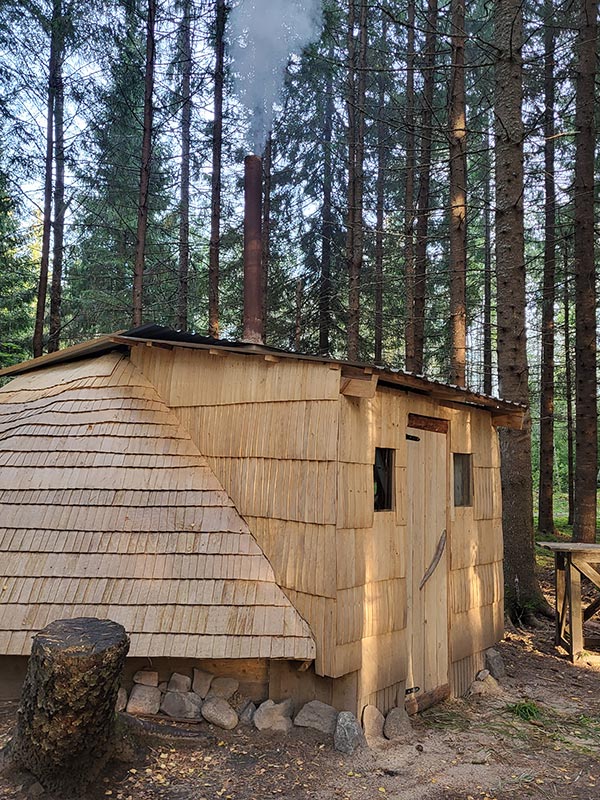
Before we leave the forest man and his family, after a home-cooked meal with home-grown vegetables, they invite us to take a sauna - in the middle of the forest. Before we start the infusion, he cuts fresh grass with a scythe. "Then it's softer on the sauna floor - like a carpet," he says as he swings the scythe. He's right. As we sing old Estonian sauna songs and sit side by side on the wooden benches, we happily end the day.
If you also want to enjoy a sauna in Estonia, I recommend a hot Smoke Sauna to visit. This is a traditional sauna that has no chimney and the smoke from burning wood circulates in the room. This peculiarity and traditional customs such as sauna songs, bathing costumes and more make the Smoke Sauna a UNESCO World Heritage Site. Unfortunately, I didn't make it back to visit one. Despite Slow Travelling, I feel like time just flies. I guess I'll have to come back.
Not enough of Estonia?
Love,
Franzi
